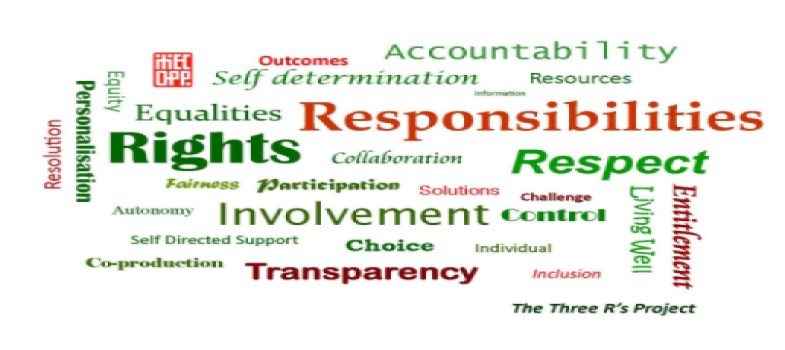Effective Challenges to Decision Making - What to do when things go wrong
5. Judicial Review
Judicial Review is a legal process which allows the actions of, or decisions made by, public bodies to be challenged in court. It is concerned primarily with whether a 'fair' process has been followed rather than outcome in the form of the decision.
What types of decisions can be reviewed?
Any decision, act
or omission by a pubic body is subject to judicial review. However, a judicial
review can only be raised if all other remedies have been exhausted and there
are appropriate grounds for challenge.
What is a public body?
‘Public body’ includes any government department (UK or Scottish Government), local authority or any other body delivering public services or exercising a public function.
A list of Scottish public bodies can be found on the Scottish Governments website (http://www.gov.scot/Topics/Government/public-bodies/about/Bodies) and
a list of UK public bodies can be found on the UK Government's website (https://www.gov.uk/government/organisations).
Grounds of review:
Lawfulness
An act/decision can be challenged on the grounds that the public authority did not have the legal authority to make it/do it. A decision can also be challenged on the basis that the public body did not apply the law correctly when making the decision.
A
public authority also has to ensure its decisions are compliant with
Human Rights and Equality legislation including failure to have
regard to Public Sector Equality Duty or a failure to investigate the
impact of policy on those with ‘protected characteristics
Procedure
The correct procedure must be followed by a pubic body when making a decision. A decision may be able to be challenged if a public body:
- restricts its discretion,
- deviates from its normal policies/practices when making a decision,
- fails to consult where appropriate,
- fails to take into account relevant information,
- takes into account irrelevant information,
- gives a false impression of how it is likely to act
- fails to provide a fair hearing or
- displays bias,
Irrationality/Proportionality
This ground relies on the concept of 'Wednesbury Unreasonableness', meaning a decision so unreasonable that no reasonable public body could ever have made it.
The test of what is reasonable comes from the case of Associated Provincial Picture Houses v Wednesbury Corporation, [1948] where “Wednesbury unreasonableness” was described as being;
‘a decision which is so outrageous in its defiance of logic or of accepted moral standards that no sensible person who had applied his mind to the question to be decided could have arrived at it.’
If a person acts in 'Bad faith', then they will almost always be acting irrationally.
Proportionality
This is a concept that only applies to some types of case and comes from EU and ECHR law where it is frequently employed in the interpretation of treaties
It has some natural overlap with unreasonableness, but has the advantage that it might be a slightly lower threshold than Wednesbury unreasonableness.
What can the court do?
The court cannot change the decision (unless the decision breaches human rights) but can overturn the decision requiring it to be made again. The court can also make a declaration, award damages and make interim orders (e.g. to prevent a decision being enforced while it is under review).
How do you raise a judicial review?
Court of Session in Edinburgh
Judicial review requires permission from the court to proceed - ‘real prospect of success’.
What does it cost?
Judicial Review proceedings can be very expensive. It should be borne in mind that an unsuccessful applicant will be liable for the public body's costs as well as their own. However legal aid is available for those eligible to meet costs and cover expenses.
Time Limit
3 months from date of decision/action giving rise to challenge
Legal Advice
Legal Advice can help with issues regarding eligibility, assessment, direct payments and charging for services
It can be particularly helpful if pursuing court action, for example Judicial review requires to be lodged in court of session and an advocate is needed
Advice and Assistance and Civil Legal Aid should be available:
Current figures for Advice and Assistance are disposable income of less than £245 and disposable capital of less than £1,716.
Civil Legal Aid figures are disposable income of £26 239 and capital of £13,017
Allowances made for dependants and disregards to capital for Pensioners
Eligibility Estimator for CLA is available at http://www.slab.org.uk/Online_calculators.html
